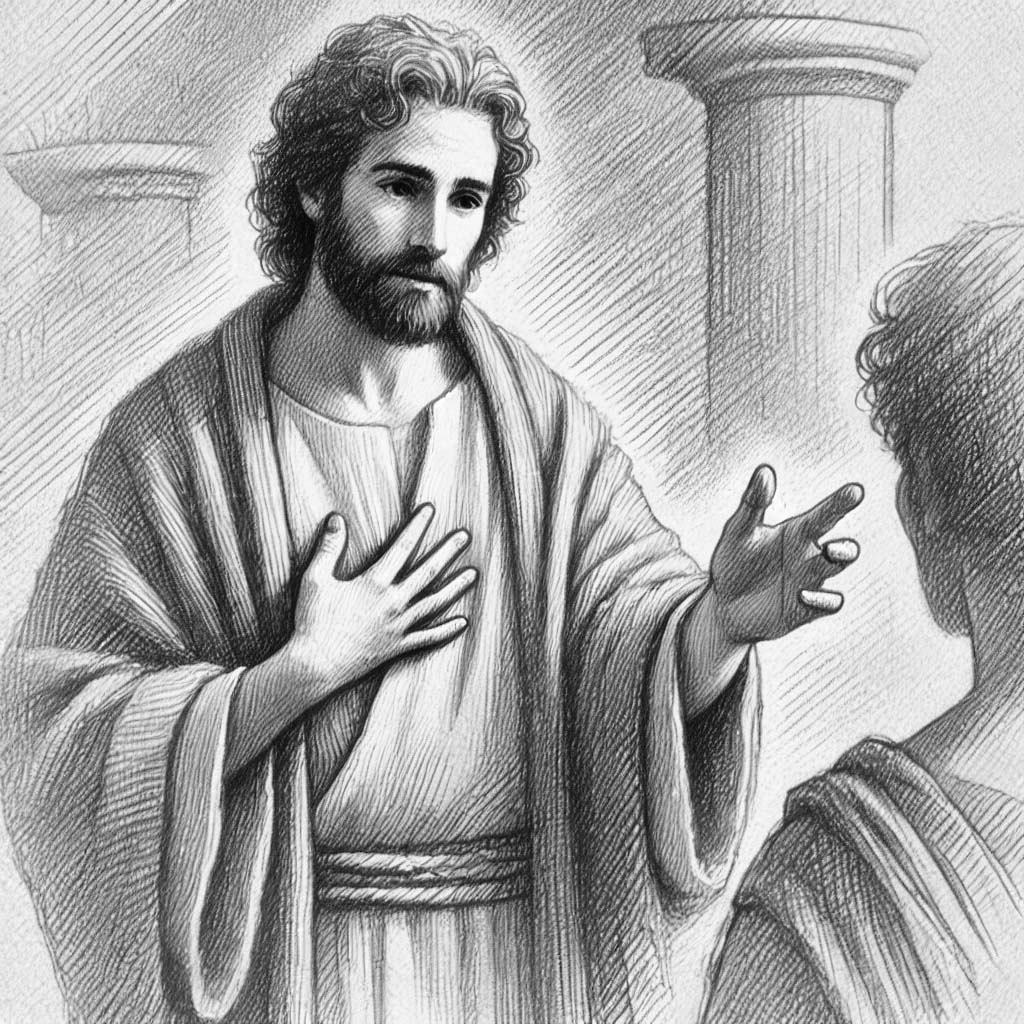The Shower of Mercy – Thaddeus

Thaddeus, also known as Jude or Judas, son of James, is a lesser-known disciple, yet his life and the few recorded words he speaks reflect the heart of a “shower of mercy” within the body of Christ. Showers of mercy embody compassion, empathy, and a desire to see people restored and reconciled to God, often comforting and uplifting those in need. While Thaddeus’s presence in the Gospels is brief, his approach to discipleship and his recorded question to Jesus reveal a heart concerned with understanding, comfort, and inclusion.
One of the most significant moments illustrating Thaddeus’s merciful nature comes in John 14:22. During the Last Supper, as Jesus is teaching the disciples about His upcoming departure, Thaddeus (referred to here as Judas, not Iscariot) asks, “Lord, why do you intend to show yourself to us and not to the world?” This question reveals Thaddeus’s compassionate concern for others not yet following Jesus. He desires for Jesus to reveal Himself more openly so that more people might come to know Him and experience His love and grace. Thaddeus’s question reflects a heart longing for the mercy and truth of Jesus to reach as many as possible.
Thaddeus’s concern for others aligns closely with the role of showing mercy, which is described in Romans 12:8 as “showing mercy, with cheerfulness.” People with this gift are sensitive to others’ needs and willing to extend compassion and understanding. Thaddeus’s query shows he wants others to share in the hope and promise Jesus offers, illustrating his desire for mercy to be extended beyond the circle of disciples.
Additionally, church tradition holds that after Jesus’ ascension, Thaddeus continued his ministry by preaching the Gospel in regions such as Edessa (in modern-day Turkey) and possibly beyond. Early Christian writings suggest that he brought healing, encouragement, and hope to those he encountered, reflecting the merciful heart of one who seeks to restore others. His gentle spirit and dedication to spreading the Gospel are in keeping with a merciful character, providing solace and care to those who need it most.
In Thaddeus, we see a disciple who cares deeply about others experiencing the grace of Christ. His life and ministry embody the merciful spirit of one who seeks to bring healing, inclusion, and hope to those in need, offering a compassionate and tender example of mercy within the church. Through his example, Thaddeus reminds us that mercy is not merely an act but a way of living that reflects God’s compassionate heart, seeking to draw all people to Him in love.
